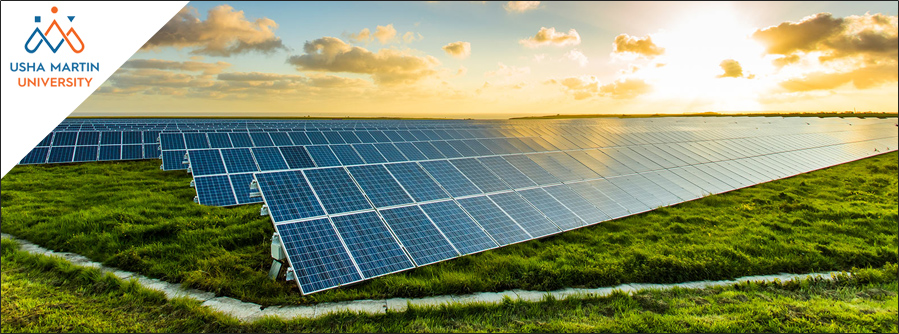
Vocationalisation of Education
February 4, 2021
Join Best Law College in India to Become a Successful Lawyer
February 22, 2021The Sun has been worshiped as a life-giver to our planet since ancient times. With 300 clear sunny days, over a dozen perennial rivers and a coastline of more than 7,500 km, India had realized the importance of the sun as a huge source of renewable energy for the benefit of her people.
In the last few years, we have witnessed visible impact of solar energy in the Indian energy scenario. Solar power capacity in our country increased by more than 11-fold in the last five years (from 2.6 GW in March,2014 to 30 GW in July, 2019). That is why India achieved 5th global position in solar power deployment by surpassing Italy.Solar energy based decentralized and distributed applications are being put in place to benefit millions of people in Indian villages for cooking food, lighting homes and other needs in an environment friendly manner. The social and economic benefits include empowerment of rural women and girls, who were invariably engaged in collection of fuel wood from long distances and cooking in smoky kitchens\. By so doing, the risk of contracting lung and eye ailments has been minimized. Moreover, improved health environment has led to better standard of living.
On an average, Jharkhand receives daily average solar radiation in the range (4.5–5.5) kWh/Sqm. This resource is being gainfully harnessed by developing suitable solar energy facilities. Jharkhand Renewable Energy Development Agency is encouraging, even supporting, all to implement rooftop solar 5 photovoltaic power plants. The beneficiaries who generate excess electricity beyond self-consumption can sale it. Since Usha Martin University plans to install solar rooftop 5 photovoltaic power plants under RESCO model concept of JREDA for self-consumption as well as supply the excess amount to the JSEB under the JREDA scheme.
Dr Alok Sahay,
Campus Director, Usha Martin University, Ranchi





